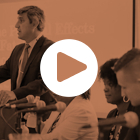This episode of Whose Law is it Anyway examines the history of the U.S. Supreme Court and the role it played in advancing civil rights, featuring Christopher Schmidt and Paul Smith.
This analysis, written by Jothie Rajah, shows how authoritarian politics deploy rule of law discourse through the case of Singapore’s fight against “fake news”.
This edition details the work of past Neukom Chairs, a group of renowned scholars from different backgrounds and areas of expertise who all share a passion for expanding equity and diversity in the law and society.
The article’s authors, including Janice Nadler, consider evidence-based strategies to reduce meat consumption by promoting animal welfare.
This volume by Tom Ginsburg surveys the state of democracy-enhancing international law and provides ideas for a way forward admist rising authoritarianism.
This episode of Whose Law is it Anyway considers diversity and inclusion within the legal profession, featuring insight from Meera E. Deo and Jamila M. Hall.
In this chapter, Tera Agyepong analyzes how racialized constructions of innocence based on race and gender intersect with the U.S. juvenile justice system.
This book by Justin Richland examines how Native Americans engage with the U.S. legal system while maintaining their own jurisdictional authority and culture.
This episode of Whose Law is it Anyway examines how COVID-19 impacted health governance and health equity around the world, featuring Carol Heimer and Miguel Alexander Pozo.
This book, edited with Shari Diamond, offers a comprehensive and comparative picture of how nations use lay people in legal decision-making.
The William C. Hubbard Law & Education Conference Endowment will fund conferences recognizing and disseminating innovative and significant scholarship on law and education.

